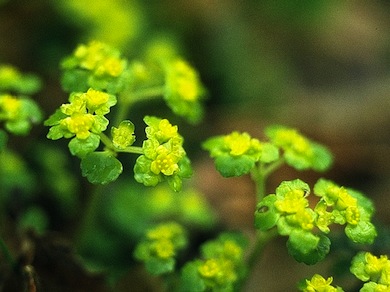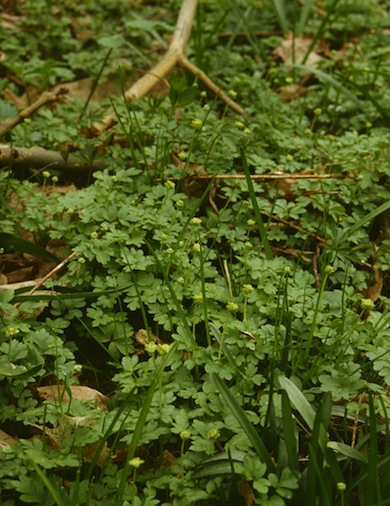This site is made up of ancient hornbeam coppice woodland, through which the River Shuttle passes. The woodland is heavily used by local people, and the plant life suffers from erosion and trampling. The Shuttle Riverway walk is signposted and passes through the site.
Local Wildlife Site
Accessible Sites of Importance for Nature Conservation
Bexley Park Woods
Borough: Bexley
Grade: Borough Grade I
Access: Free public access (all/most of site)
Area: 12.9 ha
Description
Wildlife
Despite its popularity and the impact of trampling, this ancient hornbeam woodland has a varied ground flora, including slender St John's-wort, heath speedwell, three-veined sandwort, common cow-wheat, stinking iris, moschatel, sanicle, goldilocks buttercup, and tutsan. Additional species recorded in the past, but not seen recently, include pill sedge, hairy wood-rush, yellow pimpernel and oppositeleaved golden saxifrage. Breeding birds include nuthatch, treecreeper, blackcap and green and great spotted woodpeckers. The River Shuttle runs through the northern portion of the site, the less heavily eroded banks providing some refuge for plants, such as London rare squarestalked St John's-wort and thin-spiked wood-sedge. An area of scrub in the south-west of the site supports a good range of butterflies, including ringlet, which is rare in Bexley, and the purple hairstreak butterfly. In order to maintain the richness of ground flora advice was given in 2016 to re-instate the coppice and introduce measures to control visitor access to the most fragile areas, with tighter control of dog waste. Several invasive species have been recorded at the site, including cherry laurel, cotoneaster, Spanish (and hybrid) bluebells and three-cornered garlic.Facilities
Walking route
Opposite-leaved golden-saxifrage © Mike Waite

Moschatel © Mike Waite
Feedback
Have a question or a comment for this site, or notice anything missing or out of date? Please contact us.
